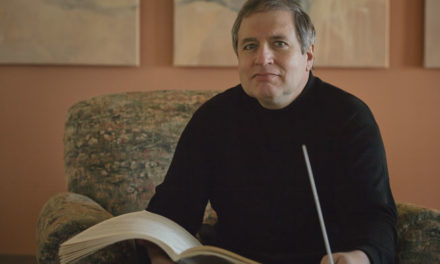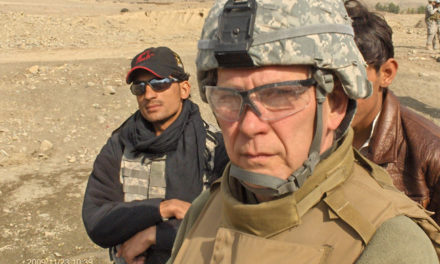
by SUSAN M. BRACKNEY
One might say Jackson Njau, 52, was born into the paleoanthropology field—or at least very near it. The Indiana University associate professor grew up in Tanzania near Olduvai Gorge, an archeological treasure trove he still explores. The spot has provided Njau with ample fossilized evidence of Homo habilis and Homo erectus—and the animals that routinely devoured them.
“Almost 50% of hominid bones bear some form of tooth markings,” Njau explains. “Some of them are just carnivores. Others are crocodile bite marks. So, these guys were living under very extreme predator pressure. Probably that was one of the factors that forced them to evolve.”
Njau definitely knows his tooth marks. To determine whether Olduvai Gorge–dwelling crocodiles ate early man, he fed goat and cow carcasses to live crocodiles. “Sometimes they would swallow the whole thing, so we didn’t get anything back,” he notes. “But cow-size [carcasses], they couldn’t swallow. They would leave behind some of the bones with tooth markings or bite marks on them.” Comparing the modern-day bones’ distinctive punctures to those found on fossilized remains helped Njau unveil Crocodylus anthropophagus, an extinct, man-eating croc.
After obtaining his bachelor’s degree from the University of Dar es Salaam, Njau earned a master’s degree and Ph.D. in anthropology from Rutgers University, then completed post-doctoral work at the University of California, Berkeley.
In 2011, Njau joined the IU Department of Geological Sciences—now the Department of Earth and Atmospheric Sciences. Njau also took on a research associate role with Bloomington-based Stone Age Institute and the Center for Research into the Anthropological Foundations of Technology. He’s an adjunct faculty member in the IU Department of Anthropology and the African Studies program, too.
Njau recently returned from Olduvai Gorge where he’s been examining drilled core samples to better understand how environmental and ecological changes may have impacted the evolution of early man. “If it’s becoming drier, the predator pressure increases in this wetland environment,” he says. “Everybody would be scrambling for the same resources.” To cope, we might’ve evolved larger brains.
When he’s not teaching or drilling the Tanzanian depths? “Usually, I just take my kids to soccer practice,” he says.







